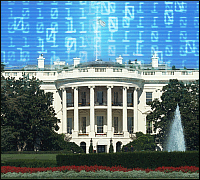 |
In tech circles, few if any political appointments have been the subject of the degree of anticipation and speculation that accompanied the run-up to President Obama’s nomination of Aneesh Chopra to serve as the nation’s first federal chief technology officer.
But the question remains: What, exactly, will Chopra’s job be?
Next Tuesday, the Senate Commerce Committee plans to hold a confirmation hearing to consider Chopra’s nomination, along with a handful of other appointments, including Lawrence Strickling, whom President Obama tapped to head the Commerce Department’s National Telecommunications and Information Administration.
But Chopra’s position is new, so his much of his role in Tuesday’s hearing figures to be a fact-finding mission for the senators.
Sen. Mark Warner (D-VA) plans to introduce Chopra at the hearing. While serving as Virginia governor, Warner appointed Chopra to represent the state on several technology boards. Warner’s successor, Gov. Tim Kaine, elevated Chopra to Virginia’s technology secretary.
The White House has said that much of Chopra’s work in the CTO position will focus on the application of technology in government, which President Obama has repeatedly singled out as a high priority.
It ranks high on Warner’s list, as well. Warner, who made a fortune as an early investor in Nextel, has worked with Chopra on several initiatives to drive state-level e-government in Virginia. Tuesday’s hearing figures to focus heavily on how those efforts will play out at the federal level.
“You could expect Senator Warner to invite Mr. Chopra to elaborate with whatever detail he has at this point how he anticipates promoting the use of technology to make government more efficient and transparent and make government more accessible to citizens,” Warner spokesman Kevin Hall told InternetNews.com. “Aneesh is a very articulate and enthusiastic supporter of technology and how it can improve business functions and government operations.”
But as Chopra’s position takes shape, it looks to be taking on a dual focus of spearheading government IT and crafting technology policies that would affect consumers and businesses.
Chopra’s hearing will likely touch on a host of tech-related initiatives the administration has taken on, such as broadband deployment and health IT, each of which received billions of dollars of funding in the economic stimulus bill.
Last month, Senator John Rockefeller, the West Virginia Democrat who chairs the committee Chopra will appear before, introduced a bill calling for universal adoption of electronic medical records.
Health IT, an area where Chopra and Warner have been very active in Virginia, seems a likely subject of next week’s hearing.
Senate sources also said that Chopra will likely face questions on the transition to digital television and spectrum policy. Members of the tech industry have been increasingly calling for reforms to the way wireless spectrum is currently allocated as they look to expand mobile broadband networks.
In March, members of the Commerce Committee introduced a bill that would direct the Federal Communications Commission and NTIA to conduct an inventory of all non-classified spectrum uses in government and the private sector, a step they said would pave the way for more efficient use of a scarce national resource.
Altogether, Chopra’s confirmation is not expected to be a contentious affair. More than anything, it will likely shed light on the charge the new position will be given.
The administration has said that Chopra will work closely with Vivek Kundra, the first country’s first CIO, in overseeing government IT.
Congressional aides have said that, as it’s been explained to them, Kundra will head up the agency’s day-to-day operations — issues like spending and systems procurement — while Chopra’s role will be more of an evangelist for new approaches to IT throughout government.


